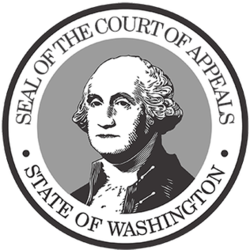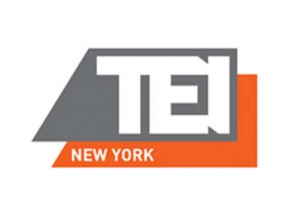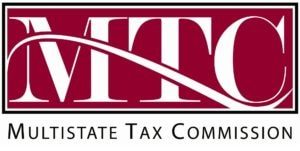 The Washington Court of Appeals held that Gartner, Inc.’s online research service was a digital automated service subject to the state’s retail sales tax and retailing Business and Occupation (B&O) Tax. Gartner, Inc. v. Washington Department of Revenue, No. 51637-3-II (Wash. App. Div. 2 Jan. 13, 2020). This decision addressed the scope of Washington’s “human effort” exclusion from the retail sales tax, the applicability of the “bundled transaction” and “true object” tests to offerings that contain taxable and nontaxable components, and the Internet Tax Freedom Act.
The Washington Court of Appeals held that Gartner, Inc.’s online research service was a digital automated service subject to the state’s retail sales tax and retailing Business and Occupation (B&O) Tax. Gartner, Inc. v. Washington Department of Revenue, No. 51637-3-II (Wash. App. Div. 2 Jan. 13, 2020). This decision addressed the scope of Washington’s “human effort” exclusion from the retail sales tax, the applicability of the “bundled transaction” and “true object” tests to offerings that contain taxable and nontaxable components, and the Internet Tax Freedom Act.
New York Appellate Division Rejects Retroactive Application of Tax Law
 On December 26, 2019, the New York State Supreme Court Appellate Division issued a strong rebuke to retroactivity by holding that a law with a 97-day retroactivity period violated the taxpayer’s Due Process rights. Matter of Mackenzie Hughes LLP et al. v. New York State Tax Appeals Trib. The Supreme Court Appellate Division, Third Department—New York’s intermediate appellate court—held the taxpayer’s Due Process rights were violated because: 1) the retroactive application of the law did not serve a public purpose; 2) the taxpayer did not have adequate forewarning of the law change; and 3) the application of the law represented a 97-day retroactivity period.
On December 26, 2019, the New York State Supreme Court Appellate Division issued a strong rebuke to retroactivity by holding that a law with a 97-day retroactivity period violated the taxpayer’s Due Process rights. Matter of Mackenzie Hughes LLP et al. v. New York State Tax Appeals Trib. The Supreme Court Appellate Division, Third Department—New York’s intermediate appellate court—held the taxpayer’s Due Process rights were violated because: 1) the retroactive application of the law did not serve a public purpose; 2) the taxpayer did not have adequate forewarning of the law change; and 3) the application of the law represented a 97-day retroactivity period.
Pillsbury SALT’s Carley Roberts Named to Tax Notes State 2020 Advisory Board
 Pillsbury SALT’s Carley Roberts has been named to the 2020 Advisory Board of the industry’s premier publication, Tax Notes State. Published by Tax Analysts, the monthly magazine features news articles and bylined articles written on the hottest trends and developments in state and local taxes. Members of Pillsbury’s SALT practice are frequent contributors.
Pillsbury SALT’s Carley Roberts has been named to the 2020 Advisory Board of the industry’s premier publication, Tax Notes State. Published by Tax Analysts, the monthly magazine features news articles and bylined articles written on the hottest trends and developments in state and local taxes. Members of Pillsbury’s SALT practice are frequent contributors.
Carley’s clients comprise a variety of industries, including energy, technology, telecommunications, media, retail and manufacturing. Her practice consists of administrative and judicial
litigation, state and local tax planning, and transactional work involving all U.S. state and local jurisdictions, where she has litigated numerous precedent-setting matters.
Repeatedly recognized for her work in all aspects of state and local tax matters, Carley was named as Tax Analysts’ Outstanding Woman of the Year in 2016, and described by Chambers USA as “…truly one of the best tax lawyers that I have had the privilege to work with. In addition to being extremely intelligent, she is an exceptional advocate for her clients.”
Pillsbury SALT is proud to congratulate Carley for this well-deserved recognition.
For more information, click here.
Oregon Releases First Set of Draft CAT Rules
The Oregon Department of Revenue (DOR) has just released a series of eight draft administrative rules for Oregon’s new Corporate Activity Tax (CAT) that go into effect on January 1, 2020. In “The CAT is Almost Out of the Bag! Oregon Releases First Set of Draft CAT Rules,” SALT team members Carley Roberts, Robert P. Merten III and Afshin Michael Khazaeli examine the rules themselves, what this may mean for companies calculating commercial activity, and more.
Pillsbury SALT Welcomes Afshin Khazaeli!

CPA and former Big 4 associate, Afshin Khazaeli joins Pillsbury SALT!
Afshin advises clients on a variety of state and local tax matters, including controversy, planning, and audit defense, across all state and local tax types, including sales and use, income, franchise, and property tax. Pillsbury SALT is thrilled to welcome him to our award-winning team. Afshin is based in Pillsbury’s Sacramento office.
5 Questions with Afshin
- Who inspires you?
I’m inspired by my father and his relentlessness. - What drew you to the law?
I love being a trusted advocate for my clients. - What aspect of State and Local Tax law do you find most interesting?
State and local tax is constantly changing, evolving and adapting. - What has been your most challenging or rewarding case?
Each case has been uniquely challenging, and the most rewarding cases are when I help my clients achieve unexpectedly great results. - What is your go-to comfort food?
Persian food! Reminds me of my mother’s cooking and being back at home.
Welcome to Pillsbury SALT, Afshin!
Navigating Local Labyrinths: Practitioners’ Guide to Local Taxes
In this article, Carley Roberts and co-authors discuss some of the more significant locally imposed taxes that could cause unexpected issues for businesses entering a new jurisdiction. They highlight Chicago Personal Property Lease Transaction Tax, San Francisco local taxes, New York City commercial rent tax, New Jersey local property tax, Jersey City payroll tax, New Jersey income tax credits, and Tennessee business tax.
To read the article, please click here.
TEI Silicon Valley Chapter’s State & Local Tax Day & IPT Joint Meeting
![]() Pillsbury SALT was proud to present TEI/IPT Silicon Valley’s State and Local Tax Day & IPT Joint Meeting on December 5! The team presented a 3/4-day seminar that focused on topics related to the State and Local Tax implications of the Tax Cuts and Jobs Act, the U.S. Supreme Court’s decision in Wayfair, and other hot topics in state and local taxation.
Pillsbury SALT was proud to present TEI/IPT Silicon Valley’s State and Local Tax Day & IPT Joint Meeting on December 5! The team presented a 3/4-day seminar that focused on topics related to the State and Local Tax implications of the Tax Cuts and Jobs Act, the U.S. Supreme Court’s decision in Wayfair, and other hot topics in state and local taxation.
TEI New York Chapter’s 56th Annual Tax Symposium
 Tax Executives Institute’s New York Chapter presents its 56th Annual Tax Symposium on December 12! The Symposium offers three concurrent technical tax sessions for Federal, State and Local and International Taxes with a wide range of important topics and great speakers. The State and Local Tax session will feature a New York Update Session with Michael Schmidt, New York State Commissioner – Department of Taxation and Finance and Deborah Liebman, Deputy Counsel, New York State DTF. In addition, acting Director, Division of Taxation, John Ficara will be joining for a New Jersey Tax Reform 2019 Edition discussion.
Tax Executives Institute’s New York Chapter presents its 56th Annual Tax Symposium on December 12! The Symposium offers three concurrent technical tax sessions for Federal, State and Local and International Taxes with a wide range of important topics and great speakers. The State and Local Tax session will feature a New York Update Session with Michael Schmidt, New York State Commissioner – Department of Taxation and Finance and Deborah Liebman, Deputy Counsel, New York State DTF. In addition, acting Director, Division of Taxation, John Ficara will be joining for a New Jersey Tax Reform 2019 Edition discussion.
One of our Pillsbury SALT partners will present “The State of State and Local Tax: Developments and Trends” as a part of the State and Local Tax session from 4:00pm-5:00pm ET.
For more information and to register, please visit the event page.
“Interactive” Website Will Defeat P.L. 86-272 Immunity If the MTC Has Its Way
 The Multistate Tax Commission (MTC) is updating its Public Law 86-272 guidance, “Statement of Information Concerning Practices of Multistate Tax Commission and Signatory States under Public Law 86-272,” to address internet activities. This guidance was last updated in 2001. The latest draft guidance, dated October 15, 2019, provides examples of when the use of an “interactive” website will defeat P.L. 86-272 immunity, even if the company has no other contact with the customer’s state. Such examples include:
The Multistate Tax Commission (MTC) is updating its Public Law 86-272 guidance, “Statement of Information Concerning Practices of Multistate Tax Commission and Signatory States under Public Law 86-272,” to address internet activities. This guidance was last updated in 2001. The latest draft guidance, dated October 15, 2019, provides examples of when the use of an “interactive” website will defeat P.L. 86-272 immunity, even if the company has no other contact with the customer’s state. Such examples include:
- providing post-sale assistance to customers via either electronic chat or email accessed through a website link;
- soliciting and receiving online applications for branded credit cards;
- inviting viewers to apply for employment;
- contracting with a marketplace facilitator, whose marketplace offers for sale the company’s products via a website and maintains the company’s inventory;
- inserting internet “cookies” into the computers or other electronic devices of customers; or
- remotely fixing products via the internet and WiFi.
Having one of the listed internet activities—by itself—would cause a company that has limited its in-state activities to solicitation of sales to lose its P.L. 86-272 immunity according to the draft guidance. In effect, the MTC’s draft guidance would eviscerate P.L. 86-272 protection given today’s digital economy.
The October 15, 2019, draft “Statement of Information Concerning Practices of Multistate Tax Commission and Signatory States under Public Law 86-272” can be accessed here. More information can be found on the MTC’s web page.
Pillsbury SALT recognized in U.S. News – Best Lawyers 2020 Best Law Firms Rankings
 Pillsbury has earned a total of 154 national and regional practice rankings in the latest U.S. News – Best Lawyers 2020 Best Law Firms survey.
Pillsbury has earned a total of 154 national and regional practice rankings in the latest U.S. News – Best Lawyers 2020 Best Law Firms survey.
The Tax team’s rankings include:
- National, Tier 1 in Litigation – Tax and Tax Law
- Miami, Tier 1 in Tax Law
- New York City, Tier 3 in Tax Law
- San Francisco, Tier 1 in Litigation – Tax and Tax Law
To view Pillsbury’s complete list of practice rankings, click here.
The U.S. News – Best Lawyers Best Law Firms rankings are based on a rigorous evaluation process that includes the collection of client and lawyer evaluations, peer review from leading attorneys in the field, and review of additional information provided by law firms as part of the formal submission process. To be eligible for a 2020 ranking, a law firm must have at least one lawyer recognized in the 25th Edition of The Best Lawyers in America list for that particular location and specialty.



